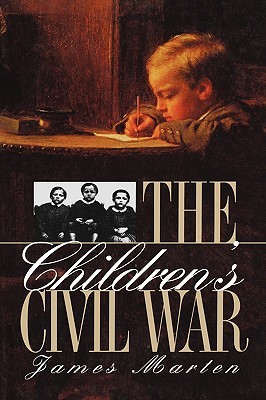Caitlin tucked her feet beneath Rascal’s warm body, the rag rug that had formerly been under the workroom’s table now in a tangle of sewn-together strips on the table in front of her. Twisting them tightly, she dipped them into a bowl of liquid beeswax, rosin, and turpentine. The days were only getting shorter, and there were no candles to be had unless one made them at home. Ana sat across from Caitlin at the work table, elbows resting on the First Reader for Southern Schools open in front of her. When the wax had cooled enough, Caitlin carefully pressed the warm waxed strips around a glass bottle, from the base to the neck. “Why don’t you read aloud, Ana.” The girl sat up a little straighter. “All right. Lesson Twenty-nine. ‘The man’s arm has been cut off. It was shot by a gun. Oh! What a sad thing war is!’ ” “That’s enough.” Ragged crimson memories from the Battles of First Bull Run and Seven Pines exploded in Caitlin’s mind. Horrific scenes that had been engraved on the parchment of her soul. Certainly it wasn’t good for Ana to dwell on such things with her own father in the army. “Let’s read something else for your lesson. Do you know where Robinson Crusoe is?”
The above scene is an excerpt from Yankee in Atlanta, where we find Caitlin McKae, formerly a Union soldier, a governess in Atlanta for the daughter of a Rebel soldier. (If you’re scratching your head about that one, I promise the Prologue and Chapter 1 of the novel will clear it right up.) One of my most fascinating discoveries while researching this novel was that of Southern textbooks. Since Caitlin is teaching her seven-year-old charge at home, I had the opportunity to include some fascinating excerpts, such as the one above, which is verbatim from its original source. During the Civil War, scores of primers, readers, and arithmetics emerged from Southern presses, borne out of a widely held perception of northern textbooks’ anti-southern biases. In The Children’s War, historian James Marten says:
In fact only a few antebellum publications specifically attacked slavery, and they were all published prior to 1830. A few school histories provided factual information, limited mainly to laws and compromises related to the institution. Although slavery was virtually never mentioned as a sectional issue, schoolbooks increasingly provided examples and excerpts that highlighted the intrinsic value of the Union. Spellers used sentences such as “Stand by the Union!” and “In union there is strength,” while readers offered stories that showed the benefits of union and emphasized the institutions and customs common to all of the United States.
The most popular readers, McGuffy’s, studiously avoided controversial issues. Even versions printed in 1862 and 1863 did not promote one side or the other, but did include stories and poems showing the hardships of war. Still, Southern presses in cities from Richmond to Mobile to Galveston produced nearly 100 schoolbooks for both patriotic and economic reasons (think blockade). Some left the war entirely out of the content. Others didn’t. In a Confederate arithmetic by L. Johnson, long lists of story problems feature war situations. In one a merchant sells salt to a soldier’s wife, in another students are asked to imagine rolling cannonballs out of their bedrooms, and in another they are to divide Confederate soldiers into squads and companies. Johnson also included these famous problems: “A Confederate soldier captured 8 Yankees each day for 9 successive days; how many did he capture in all?”; “If one Confederate soldier kills 90 Yankees, how many Yankees can 10 Confederate soldiers kill?”; and “If one Confederate soldier can whip 7 Yankees, how many soldiers can whip 49 Yankees?” Mrs. M. B. Moore’s Dixie Speller had a horrifying lesson, which I just had to use in the novel.
This sad war is a bad thing. My pa-pa went, and died in the army. My big brother went too, and got shot. A bomb shell took off his head. My aunt had three sons, and all have died in the army. [I hope] we will have peace by the time I am old enough to go to war. . . When little boys fight, old folks whip them for it; but when men fight, they say ‘how brave!’ If I were a grown-up, I would not have any war if I could help it. [But if forced to go] I would not run away like some do. . . I would sooner die at my post than desert. If my father had run away, and been shot for it, how sad I must have felt all my life! . . .This is a sad world at best. But if we pray to God to help us, and try to do the best we can, it is not so bad at last. I will pray God to help me to do well, that I may grow up to be a good and wise man.
Of course, the Civil War touched children in ways far more scathing than textbook lessons. For a more complete picture, I encourage you to check out Marten’s The Children’s War (University of North Carolina Press, 1998). Or, if you’re like me and prefer to learn while being entertained with a novel, Yankee in Atlanta shows the variety of hardships Ana faced while her father fought to defend their home.



Add new comment